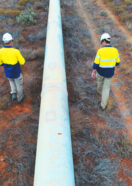The number of Hong Kong citizens looking to move in Australia has risen sharply since proposed extradition laws fuelled growing concerns about the erosion of civil liberties under Chinese rule in the city, migration consultants and property agents say.
Wealthy Hong Kong residents were also looking to move assets to third countries such as Australia as an insurance policy against the introduction of proposed extradition laws, which would allow people accused of financial crimes to be sent to China, they said.
"The most pessimistic clients hired me awhile ago. One gentleman worth north of $US100 million at one point asked me, 'Do you know for sure they are going to bring back the extradition bill?'," David Lesperance, an international tax and immigration consultant who advises clients in Hong kong and mainland China told The Australian Financial Review.
"I told him that of course I cannot predict the future, but you don't wait to get fire insurance until your house is on fire. We can both comfortably say we smell smoke [in Hong Kong]. He then made the decision to retain me."
Immigration agents said Australia, along with Canada and Taiwan, were the most popular destinations for Hong Kong residents looking to relocate overseas. All three countries have reportedly experienced a surge in inquiries since unrest over the news triggered mass protests in the former British colony over the past month.
Many were also quietly transferring assets out of Hong Kong, concerned about any push by the government could leave them vulnerable to China's opaque legal system and restrictions on capital outflows.
ohn Hu, a Hong Kong-based migration consultant specialising in the Australia market, said calls to his office more than tripled last month after scenes of police using tear gas against young demonstrators rattled the city's 7.5 million people.
"This has been going on for a while. There are a lot of good reasons why people leave Hong Kong. The recent protests are an accelerator," he said.
"Hong Kong is the most expensive city in the world. After graduation, you have to work 20 years for your first home. Young people are looking to leave because they want an opportunity to improve their quality of life."
Mr Hu said Hong Kong's high net worth individuals were looking to diversify their wealth by investing in foreign property, bonds and other assets. Australia was high on the list of destinations, he said.
"Certainly, Australia is a destination they would be thinking about. We have a very stable political situation and it is a good place to live and for childrens' education," Mr Hu, an Australian citizen, said.
One property agent in Hong Kong told The Australian Financial Review there had been an increase in the number of clients interested in selling up to invest in Sydney or Melbourne.
One senior company executive born in Hong Kong said he was planning to move next year to Australia, where other family members already had residency, as he no longer felt confident raising his two children in the former British colony.
Australia's Home Affairs Department said it would not provide a breakdown of applications for residency by country. There are already large communities of people born in Hong Kong living in Sydney and Melbourne. Many moved to Australia in the 1970s and 1980s after Britain agreed to hand over Hong Kong to China in 1997.
Mr Lesperance said Australia shared many characteristics with Canada, which had long been the most popular country for Chinese immigrants. He said Australia's proximity to Hong Kong, low crime rate, cheaper real estate and rule of law protecting assets made it a popular destination. He said requirements to be physically present in Australia for certain periods of time to be granted residency could be circumvented.
Migrant agents said Hong Kong citizens with less money were looking to move to Taiwan, which is a cheaper destination than Australia and Canada.
"The political climate is not easy," said Mr Hu, who said his business has enjoyed double-digit annual growth for the past five years thanks to dissatisfaction with Hong Kong following the 2014 Umbrella Movement, when protesters occupied key streets for 79 days.
"A lot of tension is building between the community and the Hong Kong government. It seems the Hong Kong government is not listening to the young generation," he said.
An estimated 2 million people joined a protest march last month demanding Hong Kong's leader Carrie Lam resign and the government retract controversial extradition laws which would allow alleged criminals to be transferred to China.
Protesters stormed the city's Legislative Council building last week and more protests were planned on Sunday.


